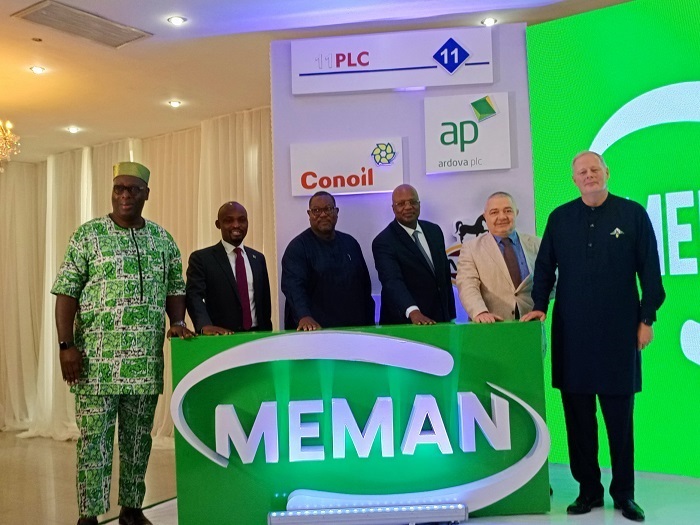…Monopolies and market concentration remain pervasive in key Nigerian sectors
-Felix Douglas
The Major Energies Marketers Association of Nigeria (MEMAN) hosted its Quarterly Press Webinar and Engagement for the second quarter of 2025, to discuss Fair and Healthy Competition in the Nigerian market. The engagement brought together key members of the press and industry experts, industry players, regional associations to examine the role of competition in shaping market dynamics and protecting consumers, especially amid growing private investments and infrastructure shifts in the industry.
The session opened with a safety briefing delivered by Engr. Moses Okoh, MEMAN Operations Manager. He provided essential guidance on remaining alert during the virtual engagement and offered instructions on how to respond in the event of a petroleum product rollover incident. The emphasis on safety reinforced MEMAN’s ongoing commitment to a strong safety culture in all operational and public-facing activities.
Speaking at the Webinar, Mr. Huub Stokman, Chairman of MEMAN, delivered the opening remarks. He emphasized that while deregulation opens new opportunities, maintaining fair and open competition is critical. He called on regulatory agencies such as the Federal Competition and Consumer Protection Commission (FCCPC) and Nigerian Midstream and Downstream Petroleum Regulatory Authority (NMDPRA) to ensure consistent oversight, promote innovation, and protect consumers in this new market reality.
Samer Matta, Senior Economist at the World Bank outlined how competition benefits both households and firms by improving pricing, service delivery, and innovation. He noted that many Nigerian sectors remain highly concentrated and urged regulators to strengthen enforcement frameworks and build internal capacity for competitive assessments.
“Breaking down barriers to competition and fostering an environment responsive to market forces will be vital for Nigeria’s economic resilience,” Matta stated. “We need to reduce protectionist measures, support regulatory neutrality, and build institutional strength to enforce fair competition laws.”
He noted that monopolies and market concentration remain pervasive in key Nigerian sectors; stating that historically, Nigeria’s industrial policy has created significant distortions to competition. These distortions revolve around:
- Unequal access to privatization favouring connected firms
- Trade and investment protectionism and import substitution policy
- Influence of large incumbent players over industrial policy and regulation
Francis Anatogu, CEO of Transaharan, drew lessons from the telecoms, banking, and aviation sectors, emphasizing how competition drives innovation and consumer choice. He stressed the importance of clear dominance thresholds, transparent market access, and SME protection. He also urged regulatory agencies to improve coordination and provide accessible complaint channels with timely resolution mechanisms.
These include:
- Limited Enforcement Capacity: Insufficient resources to monitor large markets effectively.
- Low Public Awareness: Many consumers and MSMEs remain unaware of their rights and the FCCPC’s role.
- Jurisdictional Overlaps: Regulatory conflicts with sector-specific regulators (e.g., NCC, NERC).
- Data and Intelligence Gaps: Limited access to real-time market data to detect violations early.
- Slow Judicial Processes: Enforcement of sanctions often delayed due to legal system bottlenecks.
The session examined the implications of large-scale infrastructure such as the Dangote Refinery. While such investments promise supply chain efficiency, participants cautioned against unchecked dominance. The MEMAN Secretariat committed to conducting a thorough internal review of Dangote’s logistics initiative to assess its effect on downstream competition. Stakeholders stressed the need for regulators like the FCCPC to continue monitoring developments and ensure a level playing field.
Clement Isong, MEMAN CEO, discussed the increasing adoption of Compressed Natural Gas (CNG) trucks for fuel distribution, citing potential cost reductions of up to 40%. While recognizing the innovation, he warned that uneven infrastructure availability could give certain players an outsized advantage. He urged regulators to ensure broad-based access to CNG infrastructure and encouraged MEMAN members to adopt additional efficiency models, such as solar-powered stations and logistics pooling, to drive down costs without compromising competitive fairness.
Speakers agreed that well-defined roles for stakeholders—government, private sector, and regulators—must be complemented by effective enforcement and transparency. Messrs Francis and Samer highlighted that competition, if well regulated, naturally protects consumers and drives job creation. However, strong governance is needed to prevent market failures, particularly in a transitioning and deregulated environment.
The media was recognized as a key partner in ensuring accountability and shaping public understanding. Journalists were encouraged to actively report on evolving market competition, regulatory outcomes, and business practices in the downstream sector—particularly considering recent innovations and strategic shifts.
The webinar concluded with a collective commitment to fostering a dynamic, transparent, and inclusive downstream market. As deregulation takes firm root in Nigeria’s energy landscape, stakeholders underscored the need for sustained collaboration, policy clarity, and innovation to ensure that the benefits of competition reach consumers, businesses, and the broader economy.


Comment here